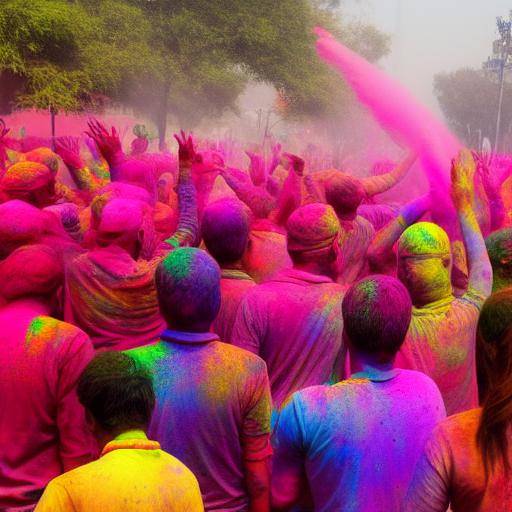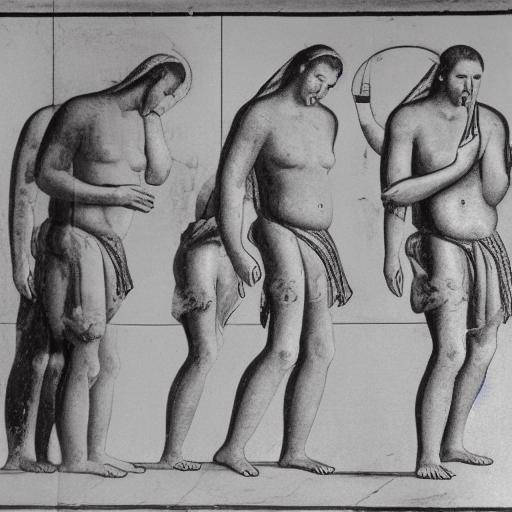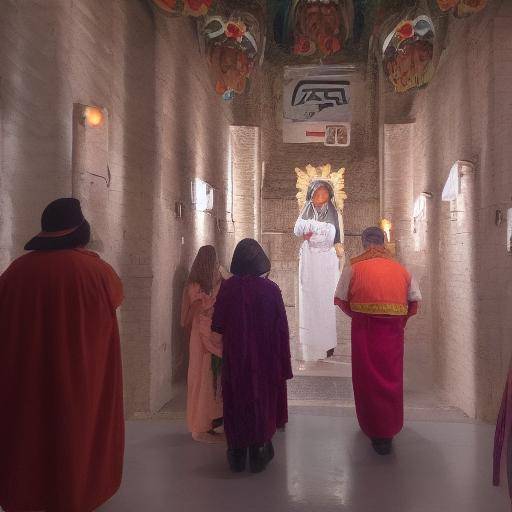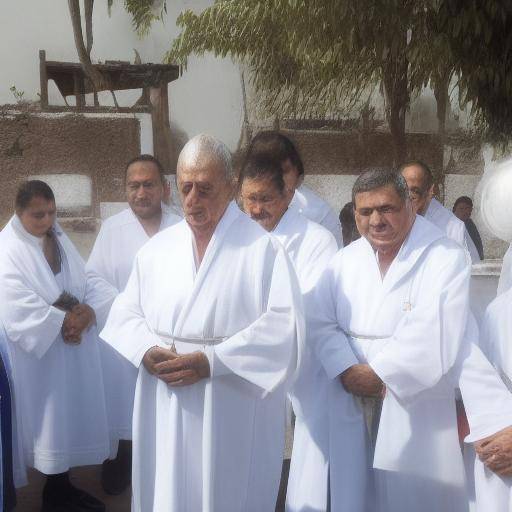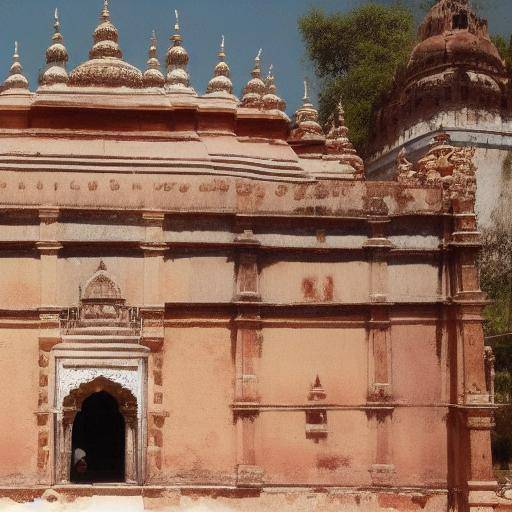
Introduction
The Kumbh Mela, also known as the "mystery of the jug," is the world's largest religious pilgrimage, which takes place in India along the Ganges River. This event, full of spirituality and meaning, attracts millions of pilgrims seeking purification and spiritual renewal. In this article, we will explore the deep connection between India, the Ganges River and the concept of purification in the context of the Kumbh Mela.
History and Background
The Kumbh Mela has its roots in Hindu mythology, rising thousands of years ago. It is said that during a heavenly struggle between devas (gods) and asuras (demons) by the elixir of immortality, four drops of nectar fell into four sacred sites, one of them being Haridwar, on the banks of the Ganges River. This event marks the beginning of the Kumbh Mela, which is celebrated in 12-year cycles in each of the four sacred sites.
The Kumbh Mela is not only a religious festival, but also a crucible of culture, philosophy and knowledge. During the event, renouncers, scholars, spiritual seekers and devotees of all castes and creeds gather to immerse themselves in the sacred waters of the Ganges in search of purification and redemption.
Deep analysis
Benefits of Kumbh Mela
The Kumbh Mela is an event of enormous proportions, which not only plays a crucial role in the spiritual life of Hindus, but also has significant socio-economic impacts. The spiritual benefits, the promotion of social cohesion, cultural exchange and the promotion of religious tourism are highlights of the Kumbh Mela.
Current Challenges and Trends
Although the Kumbh Mela is a great event, it also faces current challenges, such as crowd management, environmental preservation and the guarantee of the safety of pilgrims. Digital technologies, such as mobile applications and advanced monitoring systems, are being used to address these challenges and improve the festival experience.
Diverse Perspectives
The Kumbh Mela is a multifaceted event that has led to debates and discussions on issues such as secularization, religious syncretism and interaction between tradition and modernity. Several scholars and religious leaders have shared their views on how the Kumbh Mela is evolving to address the changing needs of contemporary society.
Comprehensive review
Applications and Best Practices
The impact of the Kumbh Mela goes beyond the religious. The logistics management, temporary infrastructure and medical care provided during the event provide valuable lessons for the planning of large congregations and emergencies in other contexts.
Opinions of Experts and Future Perspectives
Highlighted religious exponents, academics and researchers share their perceptions of the role that the Kumbh Mela plays in today's society, as well as its projections on how the event can evolve to address future spiritual and social needs.
Comparative analysis
The cultural, spiritual and environmental value associated with the river Ganges in the context of the Kumbh Mela is unique and deeply rooted in the Indian worldview. The physical and spiritual purification sought during the Kumbh Mela, through the bath in the sacred river Ganges, is a fundamental link between the concepts of India, Ganges and purification.
Practical Tips and Accessible Recommendations
Protocols for Pilgrims
If you plan to participate in the Kumbh Mela, it is crucial to understand the safety, hygiene and cultural respect protocols to ensure a safe and meaningful experience. Some useful tips include following the directions of the authorities, wearing proper clothes, and being aware of the times and procession routes.
Navigating the Kumbh Mela
Sailing through the vast and bustling Kumbh Mela space can be overwhelming. We offer practical advice to move within the festival, find accommodation, food and access to health facilities.
Perceptions of Industry and Expert Reviews
Vision of Spiritual Leaders
Religious and spiritual leaders share their perspective on the contemporary relevance of the Kumbh Mela and its role in the preservation of spirituality in a constantly changing world.
Future predictions and trends
Experts on religious tourism, event management and cultural studies analyze the possible future trends of the Kumbh Mela, such as the incorporation of technology, sustainability and the promotion of interreligious dialogue.
Case Studies and Applications in Real Life
Examples of Social Impact
We explore outstanding cases in which the Kumbh Mela has had a significant impact on society, the economy and environmental sustainability, both locally and internationally.
Learning and Lessons
Through specific cases, we reveal lessons learned and applicable in areas such as crowd management, inter-religious cooperation and promotion of environmental sustainability.
Future Trends and Predictions
Approach to Technological Developments
Technological innovations are transforming the way the Kumbh Mela is organized and experienced, with intelligent solutions for crowd management, security and communication.
Reflections on the Future
Given the growing globalization and cultural diversity, we discussed how the Kumbh Mela could evolve to maintain its relevance in a changing world, while preserving its fundamental values.
Conclusions and FAQs
Conclusions
The Kumbh Mela, with its rich history, profound spiritual significance and its multifaceted impact on society, remains a testament to the spirituality and cultural diversity of India.
Frequently asked questions
Why is the Ganges River so important in the context of the Kumbh Mela?
The Ganges River is considered sacred in the Hindu tradition and bathed in its waters during the Kumbh Mela is considered purifying and healing.
What is the frequency of the Kumbh Mela and what is its meaning?
The Kumbh Mela is celebrated in a 12-year cycle in four sacred places in India. Its meaning lies in spiritual renewal and the connection with ancestral traditions.
What measures are taken to ensure security during the Kumbh Mela?
The authorities implement rigorous security measures, from crowd control to medical supervision, to ensure the safety of attendees.
Does the Kumbh Mela have a significant economic impact?
Yes, the Kumbh Mela attracts millions of pilgrims and drives the local economy, from tourism to the sale of religious goods and services.
How can I participate in the Kumbh Mela as not Hindu?
The Kumbh Mela is an event open to people of all spiritual and religious practices, provided that traditions and protocols are respected.
What lessons on sustainability can be learned from the Kumbh Mela?
The festival offers valuable lessons on waste management, water conservation and energy, as well as on the preservation of natural environments.
With the Kumbh Mela, India, the Ganges River and the concept of purification are intertwined in a unique and meaningful experience. This pilgrimage not only represents a cultural and religious phenomenon of great importance, but also symbolizes the eternal pursuit of humanity by spiritual transcendence. As the world becomes, the Kumbh Mela continues to be a powerful manifestation of the spiritual and cultural heritage of India, rooted in the veneration of the sacred river, the union of diverse communities and the search for spiritual purification.


